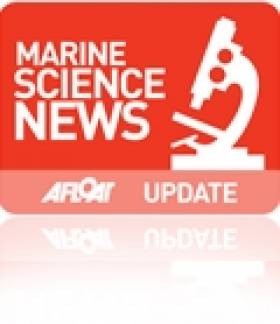Displaying items by tag: Africa
Marine Agriculture Could Be Answer To World Hunger Problem
#MarineScience - With world hunger set to be a hot button issue at the G8 summit in Northern Ireland this summer, the Guardian reports on one possible solution to the problem of food scarcity in the developing world in the form of marine agriculture.
Water scarcity is "the most severe impediment to increasing food production and security", particularly in regions like the Sahel in West Africa, where irrigation is not a practical option and dry seasons often ruin traditional rain-fed harvests.
But water scientist Ricardo Radulovich of the University of Costa Rica posits a novel approach - take advantage of Africa's lakes, many of which cover a large surface area, by using the water surface to grow crops and farm fish.
A prototype project in Nicaragua has produced crops of fruit and vegetables on floating rafts which can be made cheaply from various everyday materials.
Radulovich and his team also talk up the benefits of cultivating water-borne plants normally considered weeds, such as water hyacinth, to encourage biodiversity and attract bigger fish to areas with poor numbers.
The Guardian has much more on the story HERE.
Replica 600 BC Ship Returns Triumphant After 20,000 Mile Circumnavigation of Africa
Phoenicia was built using traditional Phoenician construction methods and materials, and designed using evidence from shipwrecks and archaeological finds. Advice from scholars ensured she was completely authentic, but on the inside she was equipped with the latest high tech electronic navigational equipment from Raymarine.
The journey was completed in two stages. The first saw Phoenicia depart from Syria in Summer 2008 and sail East as far as Yemen. After a short break, she completed her circumnavigation past Oman and Mozambique, around the Cape of Good Hope, out to the Azores, and through the Straits of Gibraltar via Tunisia, Malta and Lebanon to her final port of Arwad, where she arrived to a crowd of over 2,000 well wishers on 23rd October. The homecoming was celebrated with a gala dinner held at Tartous.
Phoenicia was fitted out with a Raymarine C80 multifunction display, GPS antenna, Automatic Identification System (AIS) receiver,, ST60+ tridata, wind system and repeater, DSM300 fish finder and Raymarine LifeTag wireless man overboard system. The systems worked flawlessly, despite facing severe conditions during the expedition including seven-metre waves and gale force winds. Having accurate navigational data also ensured Phoenicia could make the necessary detours to avoid dangerous areas prone to pirate attacks.
The Phoenicia expedition (www.phoenicia.org.uk) was conceived by Philip Beale, a former British Royal Naval Officer and entrepreneur. It is being featured in a national television documentary 'Ancient Worlds' to be shown on BBC2 in the autumn.





























































